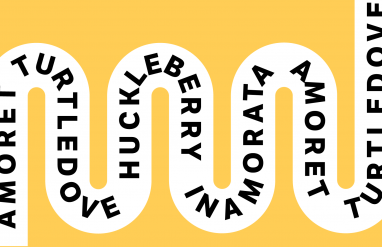Everyone loves a compliment, right? It’s nice to hear what other people notice and admire about you. And as lovely as it is to receive a compliment, it’s equally important to find opportunities to share your own compliments with other people.
Compliments aren’t just nice, empty words we say to one another. They’re a way of sharing the special reasons why we value others and of bringing them closer to us in our relationships. The key to giving a good compliment is noticing the uniquely wonderful things about other people and sharing it with them in the most specific and genuine way possible. Here’s a handy guide to how to craft authentic compliments that spread joy and let the people in your life know they’re one of a kind.
What is a compliment?
A compliment is “an expression of praise, commendation, or admiration” that’s used to point out ways people excel or things they do that set them apart.
Typically, a compliment consists of a statement of praise based on a specific event, quality, or characteristic. Most compliments also employ descriptive adjectives, like outstanding or fantastic. The key to giving a good compliment is making sure that it’s both personal and genuine.
What is worthy of a compliment?
It’s normal to compliment things like someone’s creative outfit or their great performance in a basketball game, but there are plenty of other things that are compliment-worthy as well. If you’re looking to spread some positivity and let others know how much they’re appreciated, here are some different areas where you might look for things to compliment.
Personality
If someone is a joy to be around, you can tell them that. Let them know about things you admire, how they make you feel, and how they inspire you in your own life. Here are some examples:
- I love how kind you are.
- Your patience inspires me to be more forgiving and generous with others.
- I admire how determined you are when you strongly believe in something.
Effort
If someone is working hard to better themselves or reach a goal, it could mean a lot to have that effort noticed and praised. You might say something like:
- It’s clear how hard you worked on that presentation, and it was so thought-provoking.
- I admire your commitment to your marathon training. It inspires me to work harder on my goals, too.
- You’ve grown so much as a person this year. It’s a joy to witness.
Values
There are people in the world who make you feel good and inspire you just by being who they are. What makes them so special? They’d certainly love to hear about it. Try compliments like:
- Your dedication to your friends is admirable.
- Your kindness inspires me to look for more ways to help others.
- Your thoughtful perspective makes everyone around you feel encouraged and cared for.
Unique talents or skills
If someone is really fun to be around or has an impressive sense of humor, singing ability, or perspective on things, that’s worth complimenting as well. Here are some examples:
- You tell the best jokes. Thank you for making all of us smile.
- I always look forward to hearing your point of view. It’s refreshing.
- Your organizational skills are second to none. It makes life easier for everyone around you.
How to compliment someone
1. Be genuine.
If you want your compliments to do their job, you have to make sure they’re authentic and sincere. This means noticing specific things about the person you’re complimenting and making sure you communicate your compliments in a clear and thoughtful way. Here are some tips to do that:
- Make eye contact.
- Reference specific events or examples.
- Avoid filler words, like great and really.
- Include the reason why you appreciate their presence or actions.
2. Tailor your compliment to the person and situation.
The most authentic compliments are the ones that feel personal and sincere. Before you compliment someone, ask yourself:
- What would make this person feel seen?
- What specifically do I want them to take away from the compliment?
Framing compliments this way can help you get to the heart of what you really enjoy about someone. It also helps you avoid generic statements.
For example: instead of saying, “That dress is so cute,” try something like, “You have such a great sense of style. I always look forward to seeing the outfits you put together!”
3. Focus on things that are under their control.
It’s a good idea to avoid compliments that focus on aspects of someone’s appearance or abilities that aren’t directly in their control. Why? Because those sorts of compliments can focus on outcomes rather than effort and put undue pressure on people.
Maybe there’s a friend in yoga class who consistently nails every pose. Rather than saying, “Wow, you’re so flexible,” opt for something like, “Your dedication to our yoga practice is really inspiring. I can tell you’re getting stronger!”
Whether or not someone is athletic, beautiful, or super smart isn’t necessarily in their control, but they are in control of the steps they take to feel stronger, healthier, or more successful, and they’ll appreciate that someone notices their effort.
4. Be respectful.
Some compliments aren’t appropriate, even if you mean well. For example, it can be considered unprofessional and even inappropriate to comment on someone’s appearance in the workplace. Similarly, commenting on things like someone’s body size, how much money they have, or other details about their personal life can make things awkward in almost any setting.
Remember: the goal with a compliment is to praise someone while still respecting their personal boundaries and the etiquette of the setting.
5. Don’t make it about you.
When you give someone a compliment, try to avoid using “I” statements that shift the focus back to you. For example, don’t say something like, “You’re so great at X. I’ll never be able to do that.”
If you compliment someone this way, the exchange becomes an opportunity for them to reassure you or talk about your abilities, rather than a chance for them to feel good about something they do well. The person receiving the compliment should get to be the star of the show.
6. Choose the right words.
The language you use in a compliment matters. If you fall back on generic or overused adjectives, like good or nice, it can make your compliment seem less sincere. Instead, try to choose descriptive adjectives that are precise, engaging, and that communicate your true feelings. Consider the difference between these two examples:
- You did a great job!
- You put a lot of hard work into that performance, and it was exceptional. I’m so proud of what you just accomplished!
The first compliment is nice, but non-specific. The second example includes more detail, a stronger adjective, and uses more specific language. It seems tailored to the situation, and that helps it come across as being more sincere.
7. Look out for unique opportunities to offer compliments.
Make an effort to notice and compliment others more often. This can include praising the people you see every day, but also be on the lookout for ways to praise people who help you out at the store, take your order in a restaurant, or who you notice doing nice things out in the world.
Not only is it a way to spread positivity, but it’s also good practice. Noticing more and more opportunities to compliment others will help your compliments become more personalized, genuine, and treasured by those on the receiving end.














